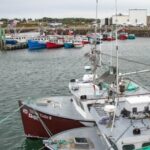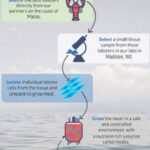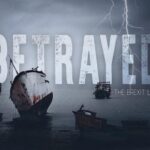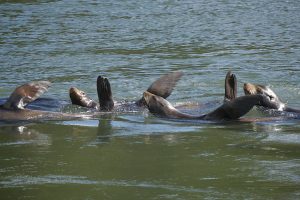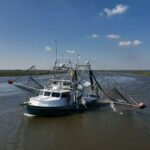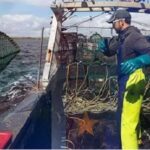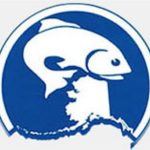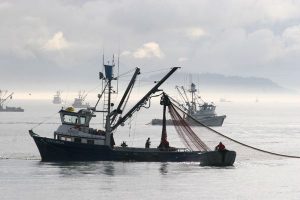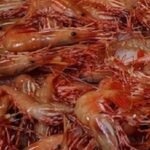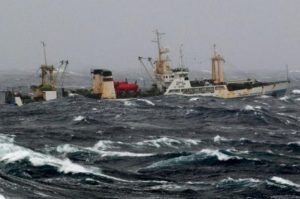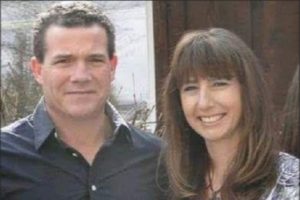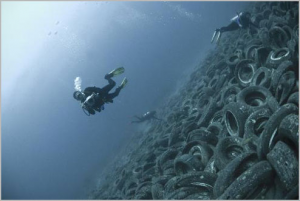Daily Archives: June 19, 2017
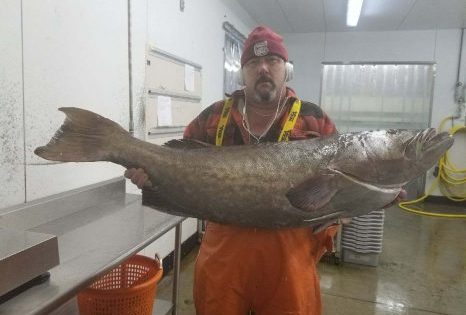
Finding purpose and taking pride in your work, even when it’s cutting fish
As a young boy, David Bruns loved to play on the docks at Shem Creek. He’d always wait to see what the fishing boats and shrimp trawlers unloaded. The salt spray and pluff mud seemed part of his DNA. Born and raised in Mount Pleasant, Bruns looked like he could be a defensive lineman. But he was far more fascinated with fish than football. After his days were done at Wando High School, Bruns found work as a driver for Simmons Seafood. While some workers might complain about the smell or the hours, Bruns believed he was around the business and the people for a reason. After three years, he applied for a position with Crosby’s Seafood. This, too, involved making some deliveries, but there was an additional opportunity. He could learn to cut fish. Bruns was taught the intricacies of boning and filleting fish. If you cut meat, you’re a butcher. If you dissect fish, you’re a fish cutter. click here to read the story 20:18
Cape Sharp Tidal turbine removed from water – Fishermen, “For us, it’s a total vindication,,,”
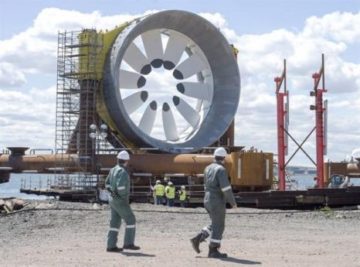 The Cape Sharp Tidal turbine has been removed from the Minas Passage, but plans to conduct testing at another location farther down the Nova Scotia coast have been cancelled. The company had planned to move the turbine in April from near Parrsboro to St. Marys Bay to do some short-term hydrodynamic testing. But a mooring line became entangled in it, so the move was postponed. Cape Sharp spokesperson Stacey Pineau said the company now has no plans to resume the testing in St. Marys Bay. The proposed testing had drawn opposition from some fishermen, who said no environmental assessment had been carried out for that work. Colin Sproul, of the Bay of Fundy Inshore Fishermen’s Association, said the removal of the turbine is “a positive development” because the company has not been able to monitor the equipment since the turbine was disconnected from the transmission cable two months ago. click here to read the story 18:52
The Cape Sharp Tidal turbine has been removed from the Minas Passage, but plans to conduct testing at another location farther down the Nova Scotia coast have been cancelled. The company had planned to move the turbine in April from near Parrsboro to St. Marys Bay to do some short-term hydrodynamic testing. But a mooring line became entangled in it, so the move was postponed. Cape Sharp spokesperson Stacey Pineau said the company now has no plans to resume the testing in St. Marys Bay. The proposed testing had drawn opposition from some fishermen, who said no environmental assessment had been carried out for that work. Colin Sproul, of the Bay of Fundy Inshore Fishermen’s Association, said the removal of the turbine is “a positive development” because the company has not been able to monitor the equipment since the turbine was disconnected from the transmission cable two months ago. click here to read the story 18:52
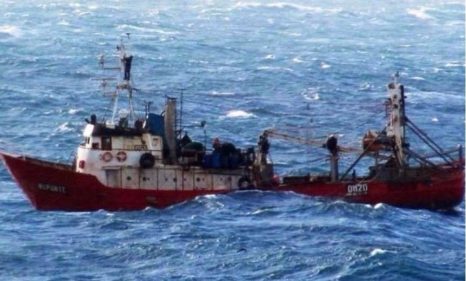
At least three killed as Argentine fishing boat sinks off Chubut
Argentine Coast Guard found Sunday the dead body of two of the nine crew members missing after Saturday’s sinking of a fishing vessel off the coast of Argentina’s southern province of Chubut, it was reported, while one more sailor whose body is yet to be retrieved is also feared dead and seven more are still missing. The fishing vessel Repunte sank about 80 kilometers north of the coast of Rawson, in the Patagonian province of Chubut, it was reported. On Saturday, the Coast Guard managed to rescue two survivors and detected the lifeless body of another. It all began Saturday morning, when the captain of the Argentine-flagged Repunte signaled the Maria Liliana, which sailed 16 nautical miles (about 32 kilometers) apart, that they were abandoning click here to read the story 18:06
New England Fishery Management Council meeting in Portland, Me. June 20 thru 22, 2017
 The New England Fishery Management Council will be meeting at the Holiday Inn by the Bay, Portland, ME., June 20, 2017 –
The New England Fishery Management Council will be meeting at the Holiday Inn by the Bay, Portland, ME., June 20, 2017 –
June 22, 2017 To read the final agenda, click here Register click here to listen live via webinar. 16:52
FISH-NL calls on FFAW President Keith Sullivan to apologize to members
 The Federation of Independent Sea Harvesters of Newfoundland and Labrador (FISH-NL) is calling on Keith Sullivan, president of the FFAW-Unifor, to publicly apologize to his members after an appeal court ruled in favour of scallop harvesters who were deceived by the union. Further, FISH-NL is calling for the resignation of Dave Decker, the union’s secretary-treasurer, who was in charge of the funding, as well as the firing of Jason Spingle, the FFAW staff representative who helped orchestrate the deal. “It’s practically unheard of for a union to be convicted in court of misrepresenting its membership,” says Ryan Cleary, President of FISH-NL. “Inshore harvesters have been saying for years that the FFAW no longer speaks for them — that the union is failing its membership — and this latest court decision proves that.” click here to read the press release 15:59
The Federation of Independent Sea Harvesters of Newfoundland and Labrador (FISH-NL) is calling on Keith Sullivan, president of the FFAW-Unifor, to publicly apologize to his members after an appeal court ruled in favour of scallop harvesters who were deceived by the union. Further, FISH-NL is calling for the resignation of Dave Decker, the union’s secretary-treasurer, who was in charge of the funding, as well as the firing of Jason Spingle, the FFAW staff representative who helped orchestrate the deal. “It’s practically unheard of for a union to be convicted in court of misrepresenting its membership,” says Ryan Cleary, President of FISH-NL. “Inshore harvesters have been saying for years that the FFAW no longer speaks for them — that the union is failing its membership — and this latest court decision proves that.” click here to read the press release 15:59
Can offshore wind revive America’s ports? This town hopes so
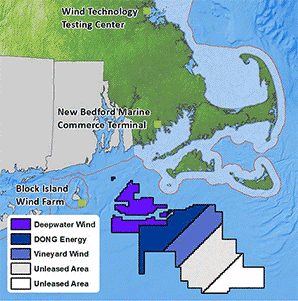 New Bedford – This salt-caked fishing port has been flush with wind prospectors ever since Massachusetts legislators passed a law for massive wind development in the shallow waters south of Martha’s Vineyard.,,, States up and down the Atlantic coast are rushing to become the capital of America’s burgeoning offshore wind industry, hoping the massive turbines will breathe new life into ports mired by a shrinking fishing industry and a flagging industrial base. Maryland officials last month approved renewable energy credits for two developments totaling 368 megawatts off their shores in a bid to transform Baltimore and Ocean City into the industry’s manufacturing and maintenance hub in the Mid-Atlantic (Climatewire, May 12). Lawmakers in New Jersey are counting down the days until Gov. Chris Christie (R) leaves office early next year, when they plan to restore their own credits for offshore wind developments (Energywire, June 9). In New York, Gov. Andrew Cuomo (D) wants to bring 2,400 megawatts of wind power online by 2030 (Energywire, Jan. 11). But few places are betting on offshore wind quite like New Bedford. click here to read the story 11:58
New Bedford – This salt-caked fishing port has been flush with wind prospectors ever since Massachusetts legislators passed a law for massive wind development in the shallow waters south of Martha’s Vineyard.,,, States up and down the Atlantic coast are rushing to become the capital of America’s burgeoning offshore wind industry, hoping the massive turbines will breathe new life into ports mired by a shrinking fishing industry and a flagging industrial base. Maryland officials last month approved renewable energy credits for two developments totaling 368 megawatts off their shores in a bid to transform Baltimore and Ocean City into the industry’s manufacturing and maintenance hub in the Mid-Atlantic (Climatewire, May 12). Lawmakers in New Jersey are counting down the days until Gov. Chris Christie (R) leaves office early next year, when they plan to restore their own credits for offshore wind developments (Energywire, June 9). In New York, Gov. Andrew Cuomo (D) wants to bring 2,400 megawatts of wind power online by 2030 (Energywire, Jan. 11). But few places are betting on offshore wind quite like New Bedford. click here to read the story 11:58
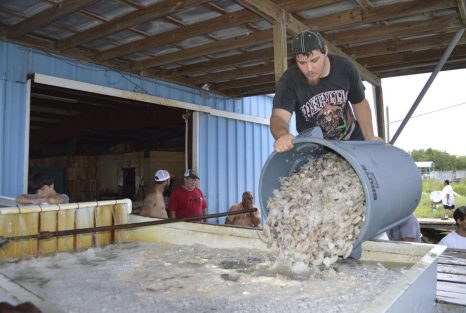
Georgia shrimping season spawns unusual crop: optimism
The rope that dangled down into the hold of the Jo Ann B from a small square opening in the deck suddenly went taut. The winch overhead hummed Friday as it strained, slowly raising a 55-gallon plastic can loaded to the brim with Coastal Georgia’s most-prized saltwater delicacy. The bounty of wild Georgia shrimp swayed high above the boat Friday morning, then swung over to the City Market docks. Jake Wilson took it from there, manhandling the huge bucket of white roe shrimp and dumping the catch into a spacious water trough for processing at the City Market plant on Brunswick’s East River. This process repeats itself many times before Capt. Joe Williams’ Jo Ann B had unloaded its plentiful catch for the day. Entering the third week of the 2017 shrimping season in Georgia’s state waters, the folks who ply the coast to bring the Golden Isles these delicious crustaceans are feeling something strange: optimism. click here to read the story 11:18
FISH-NL recommends Ottawa cancel 2017 sentinel cod program
 The Federation of Independent Sea Harvesters of Newfoundland and Labrador (FISH-NL) recommends that Ottawa cancel the 2017 sentinel cod program, a series of tests fisheries around the province first introduced when stocks were under moratoria. “The sentinel fisheries have become a waste of taxpayers’ money because the model was developed for the moratoria years, and the uncertainties in the data means it has little to no impact when it is used in the assessment model,” says Ryan Cleary, President of FISH-NL. “It appears the catch data may have also been negatively impacted by the resumption of the commercial fisheries and other factors.” click here to read the press release 10:48
The Federation of Independent Sea Harvesters of Newfoundland and Labrador (FISH-NL) recommends that Ottawa cancel the 2017 sentinel cod program, a series of tests fisheries around the province first introduced when stocks were under moratoria. “The sentinel fisheries have become a waste of taxpayers’ money because the model was developed for the moratoria years, and the uncertainties in the data means it has little to no impact when it is used in the assessment model,” says Ryan Cleary, President of FISH-NL. “It appears the catch data may have also been negatively impacted by the resumption of the commercial fisheries and other factors.” click here to read the press release 10:48
Opinion: Rafael’s assets could fund observer program
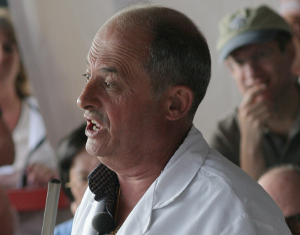 Any discussion of fishery management nowadays — official and casual alike — is likely to include musings on what should happen to the assets forfeited by Carlos Rafael as punishment for his recent crimes. Mr. Rafael pleaded guilty to charges related to his falsifying landing records and laundering cash, and is scheduled to be sentenced in late July. The courts are working to untangle the IRS and fisheries crimes, dealing with them at one time. A careful distinction between tax penalties and fishing penalties must be made. The penalties for the tax crimes will be arrived at through IRS rules and laws. The penalties for fisheries crimes are stipulated in NOAA regulations. They provide great latitude in application, from a slap on the wrist to a permanent end of fishing for Carlos Seafood. The defense is making an argument that Mr. Rafael’s influence on the fishery is so important — due to his size — that economic harm to others would be too great if he were to be sanctioned too severely. click here to read the op-ed 08:42
Any discussion of fishery management nowadays — official and casual alike — is likely to include musings on what should happen to the assets forfeited by Carlos Rafael as punishment for his recent crimes. Mr. Rafael pleaded guilty to charges related to his falsifying landing records and laundering cash, and is scheduled to be sentenced in late July. The courts are working to untangle the IRS and fisheries crimes, dealing with them at one time. A careful distinction between tax penalties and fishing penalties must be made. The penalties for the tax crimes will be arrived at through IRS rules and laws. The penalties for fisheries crimes are stipulated in NOAA regulations. They provide great latitude in application, from a slap on the wrist to a permanent end of fishing for Carlos Seafood. The defense is making an argument that Mr. Rafael’s influence on the fishery is so important — due to his size — that economic harm to others would be too great if he were to be sanctioned too severely. click here to read the op-ed 08:42
On the docks, no sympathy for deadlocked lawmakers
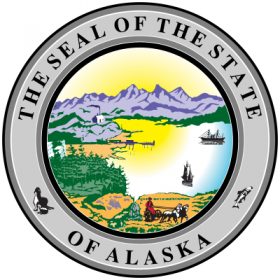 It’s a good thing our boats don’t have wheels,” Delay said, “because if they did, we’d be driving them through the front door of the Capitol.” Though he was speaking figuratively, Delay wasn’t being hyperbolic. Juneau gillnetters are frustrated. They start their season Sunday under uncertain seas: Not knowing what could happen in the event of a July 1 government shutdown, salmon management could be curtailed or shut down during the most lucrative part of the gillnet season. The Alaska Department of Fish &Game sets time limits and other regulations for salmon fishermen to ensure enough fish get upriver and past nets to spawn. Without those regulations, fishermen won’t be allowed to fish. click here to read the story 08:05
It’s a good thing our boats don’t have wheels,” Delay said, “because if they did, we’d be driving them through the front door of the Capitol.” Though he was speaking figuratively, Delay wasn’t being hyperbolic. Juneau gillnetters are frustrated. They start their season Sunday under uncertain seas: Not knowing what could happen in the event of a July 1 government shutdown, salmon management could be curtailed or shut down during the most lucrative part of the gillnet season. The Alaska Department of Fish &Game sets time limits and other regulations for salmon fishermen to ensure enough fish get upriver and past nets to spawn. Without those regulations, fishermen won’t be allowed to fish. click here to read the story 08:05
In a Bering Sea battle of killer whales vs. fishermen, the whales are winning
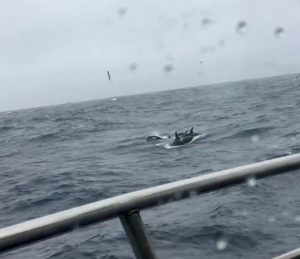 In the Bering Sea, near the edge the continental shelf, fishermen are trying to escape a predator that seems to outwit them at every turn, stripping their fishing lines and lurking behind their vessels. The predators are pods of killer whales chasing down the halibut and black cod caught by longline fishermen. Fishermen say the whales are becoming a common sight — and problem — in recent years, as they’ve gone from an occasional pest to apparently targeting the fishermen’s lines. Fishermen say they can harvest 20,000 to 30,000 pounds of halibut in a single day, only to harvest next to nothing the next when a pod of killer whales recognizes their boat. The hooks will be stripped clean, longtime Bering Sea longliner Jay Hebert said in a phone interview this week. Sometimes there will be just halibut “lips” still attached to hooks — if anything at all. click here to read the story 07:35
In the Bering Sea, near the edge the continental shelf, fishermen are trying to escape a predator that seems to outwit them at every turn, stripping their fishing lines and lurking behind their vessels. The predators are pods of killer whales chasing down the halibut and black cod caught by longline fishermen. Fishermen say the whales are becoming a common sight — and problem — in recent years, as they’ve gone from an occasional pest to apparently targeting the fishermen’s lines. Fishermen say they can harvest 20,000 to 30,000 pounds of halibut in a single day, only to harvest next to nothing the next when a pod of killer whales recognizes their boat. The hooks will be stripped clean, longtime Bering Sea longliner Jay Hebert said in a phone interview this week. Sometimes there will be just halibut “lips” still attached to hooks — if anything at all. click here to read the story 07:35



































